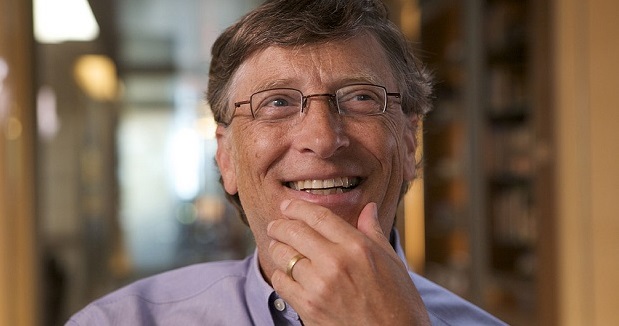“I don’t think that backdoors into encryption is going to increase security or is in the direction the world is going.”
With those words, billionaire philanthropist and Microsoft founder Bill Gates joined the debate on whether or not Apple Inc. should help law enforcement authorities unlock the iPhone owned by one of the attackers in the San Bernardino, Calif. shooting continues to heat up as Microsoft founder Bill Gates added his voice to those in favour of hacking into the device.
Gates is just one of the many leaders in the technology industry to voice their concerns over “first-of-its-kind court order by U.S. Judge Sheri Pym, that has pitted digital privacy rights against the rights of the state to access private digital information in the course of a crime investigation.
Apple continues to resists a court ruling stating that the company should provide a the Federal Bureau of Investigation a software that would enable them to access the data in the phone which belonged to shooter Syed Farook who together with his wife gunned down 14 of Farook’s co-workers in December.
RELATED CONTENT
Google, Apple close ranks against court order to unlock iPhone
Cyber spy agency found to have broken privacy laws
Balancing act: privacy and use of personal information
The incident from which all this stems from – the December 2 during a holiday luncheon massacre in San Bernardino – has been called the deadliest terrorist attack on U.S. soil since the 2001 attack on the World Trade Centre and the Pentagon.
Recently Mark Zuckerberg, CEO of Facebook joined the heads of other tech companies such as Twitter and Google in supporting Apple CEO Tim Cook on his stance against the court ruling on the grounds that it is against the principles of privacy and that such a move would create a backdoor to similar iPhones.
But in an interview with the Financial Times, Gates likened the situation to instances when the police are asking for records from a phone company.
He said that the issue centres on a “specific case where the government is asking for access to information.”
“I don’t think that backdoors into encryption is going to increase security or is in the direction the world is going,” he said.
On Monday, Some victims of the December 2015, San Bernardino, Calif. shooting have expressed intent to file a legal brief in support of the government’s quests to access the data in the iPhone.
A lawyer for the victims told the news agency Reuters that his clients have an interest in the information contained on in the device.
“They were targeted by terrorists, and they need to know why, how this could happen,” Stephen Larson, a lawyer for the victims said. He said he was contacted a week ago by the U.S. Justice Department and local prosecutors about representing the victims, prior to the dispute becoming public.
Some 51 per cent of Americans said Apple should unlock the iPhone while 38 per cent said Apple should not and that security of user information should be protected, according to a Pew Research Center survey.
What does all this have to do with Canada?
Privacy expert, David Fewer, director of the Samuelson-Glushko Canadian Internet Policy & Public Interest Clinic (CIPPIC), said there are some parallels that we should pay attention to.
“Canadian police authorities share a desire for greater investigatory powers and dislike security and encryption technologies that have beneficial applications,” he said.
The lawyer also said that the issue reaches beyond the police investigation.
“The question is much, much more important than that: is this the kind of police power that is compatible with a free democracy?,” according to Fewer. “Do the risks to liberty and security – through use, abuse and misuse of these tools by law enforcement and by criminals – outweigh any marginal benefit to crime investigation? This police request asks the court to essentially redefine the relationship between citizens and their governments at a time when the technologies we use to communicate are evolving rapidly. This is a complicated and momentous request.”

